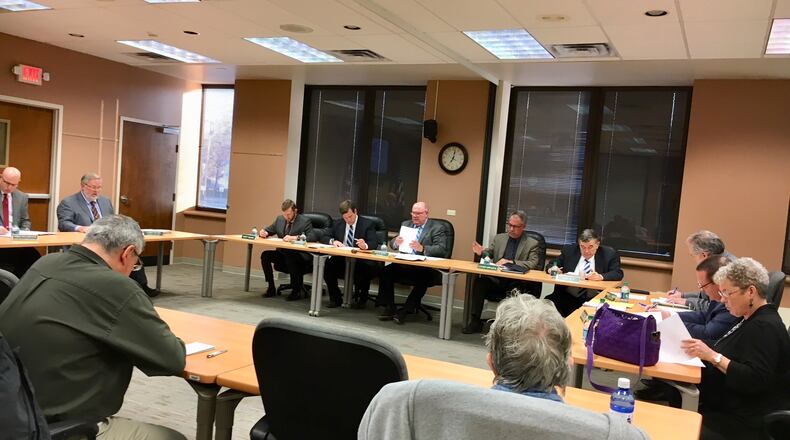Jones’ offer came in the wake of 17 students shot dead at a Parkland, Fla. high school.
“Teachers are there to teach,” said Hamilton resident Bob Harris. “I’d like to keep our schools as schools and not prisons … so I’m against the guns.”
“I ask that you make the right decision and keep guns out of the schools,” Harris told the board members.
Police and armed school resource officers, said Janet Davies, “are trained to handle the dynamics and chaos of an active shooter situation. Civilians and teachers are not.”
“Research casts significant doubt that civilians can shoot as well as trained police officers in an active shooter situation,” said Davies.
As in recent meetings, the board listened but took no action as allowed under Ohio law for local boards of education to create a process in which trained employees, who volunteer to carry or have access to a handgun, would be allowed in schools.
But Interim Superintendent Larry Knapp said district officials are not standing still on searching for ways to improve school safety.
Knapp said the district is studying adding classroom door barricades – similar to what was installed in Warren County’s Kings Schools three years ago.
State fire regulations now allow “a barricading device in every classroom,” said Knapp.
“That is something we definitely need to take a look at because it is something that can be employed in each individual classroom. There are some downsides to it as well, but the positives (exist) of you being able to lock the door even if the (door) window gets shot out,” he said.
In other board action, two speakers who had previously urged the members to update the public on the independent investigation into allegations against Hamilton Superintendent Tony Orr of violations of board policy, made their case again.
Board President Steve Isgro declined to go into details but told the speakers the process, which began in early February with the surprise announcement of the board placing Orr on paid leave, members are following legal advice.
The allegations, said the board, involve possible violation of board policies.
“We go by the direction of the school board attorney and he meets with the (independent) investigator. And when he gets the information, we get the information. And that information we just don’t have yet,” said Isgro.
“I wish we did. I wish we could tell people more but we have to follow the confidentiality of the investigation,” he said.
About the Author
